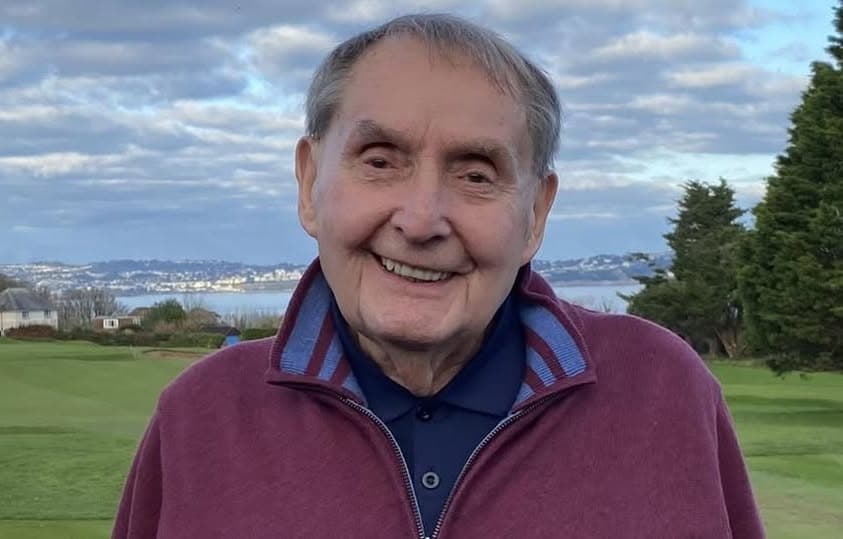He’s served his punishment and deserves a second chance.
Or do you think he should be damned forever after one mistake?
Ordinarilly I would look to forgive and give someone a 2nd chance, but match fixing is something I struggle to forgive, it is the most corrupt form of cheating a player can partake in. Up there with clubs bribing match officials.
It’s not like he was a ringleader. He knew about it and didn’t report it, and he bet on a match. That’s all, and he was a young man in his early twenties. I doubt any of us were impeccable at that age.
For those infringements he was banned for two years.
He’s served his time and should be allowed his second chance.
I was totally peccable in my early-twenties.
Oh, I’m not denying I made some dodgy decisions in my early 20’s. Just look at my ex-girlfriends ![]()
But I never cheated my teammates or opponantes on the football or cricket fields, and especially if I had been good enough to have been competing at the top level
Watching the World Senior Championship.
Difference in standard is huge.
Referee has a nice cleavage though
That’s Michaela Tabb, who was the first female ref on the professional circuit, back in the early 2000s.
Just before turning 90, Ray Reardon finally wrote it down — honest and unvarnished:
“They called me Dracula.
Said I was ruthless on the table, always smiling when I sank the last ball.
But if I’ve learned anything after all these years in the game — it’s this:
You don’t win by just potting balls.
You win by knowing yourself.”
I didn’t grow up with riches.
I grew up in Tredegar, South Wales — coal country.
The mines were where most boys went, and I went there too.
Dark, dangerous work.
It taught me patience.
It taught me focus.
And it taught me that life, like snooker, isn’t played in perfect light.
I played snooker in the evenings.
Not for fame.
Not even for money.
For the love of the game — and the peace it gave me after a long shift underground.
By the time I turned professional, I wasn’t playing to impress anyone.
I was playing to prove that skill, patience, and steel could take you anywhere.
And then, one day, I wasn’t just playing.
I was winning.
World Champion. Again. And again. And again.
Six times in the 1970s.
People remembered the grin, the control, the calm under pressure.
But they didn’t always know the grit.
![]() Because here’s the truth I don’t always say:
Because here’s the truth I don’t always say:
The pressure never sleeps.
The eyes of the crowd can feel heavier than the cue in your hands.
Fame brought the applause, but not always the balance.
There were years when the wins mattered more than the joy.
Years when I forgot the boy in Tredegar who simply loved the game.
I lost matches I thought I had in my pocket.
I lost friends to time and distance.
And for a while, I nearly lost the spark that kept me at the table.
But like any great frame… I fought back.
I adjusted my stance.
I played a slower, smarter game.
I worked on my patience like I once worked on my safety shots.
Because snooker isn’t just about break-building.
It’s about discipline.
About outthinking your opponent — and sometimes yourself.
![]() In my 30s, I thought success was lifting trophies.
In my 30s, I thought success was lifting trophies.
In my 40s, I thought it was being feared across the baize.
Now, in my later years, I know the truth:
Success is when you can walk away from the table with dignity — win or lose —
and still love the game.
So if I could tell you one thing, it would be this:
You don’t have to dominate to matter.
You don’t have to play every shot for the crowd.
And you don’t have to win every frame —
just the ones that remind you why you picked up a cue in the first place.
Because sometimes, the biggest prize you win…
is called peace of mind.
With steady hands,
a smile they’ll never forget,
and always —
that Ray Reardon twinkle in my eye —
— Ray Reardon
![]() Champion. Gentleman. Student of the game.
Champion. Gentleman. Student of the game.
Still all-in on the frame of life.
Every match at the Masters so far has been 6-2, I’ve been betting on it since Monday (only small fare) but it’s doing nothing for a sport that’s been accused of betting scandal.
All first round matches… crazy
Especially taking into account how closely matched some of these games appeared to be on paper.
Haha. Higgins and Zhao take it to the last ball.
Kinda harsh on Zhao, that.
All the Q Finals go to final frame.
Intense frame happening right now, Wilson v Higgins. Neither of them can finish it…feels like a Liverpool match tbh…
Probably less boring ![]()
Mrs SBYM doesn’t think so.
Higgins slows everything down, hes only 50 but the way he moves looks more like a 70 year old , come on Kyran
Nice to see Kyren shoot that damn monkey, but the standard felt a little off all week, didn’t it? I read a lot of complaints about the ‘match-day’ experience, as well.
Not to say I didn’t enjoy it. Snooker in January is never less than a blessing.
Been twice and really enjoyed it, I know Sullivan has moaned about it at times so you never much know if it’s his fan base sometimes.
Yeah. I heard there were a lot of Ronnie Ultras slouching around, refusing to enjoy themselves because they’d paid to see Ronnie and only Ronnie. ![]()
